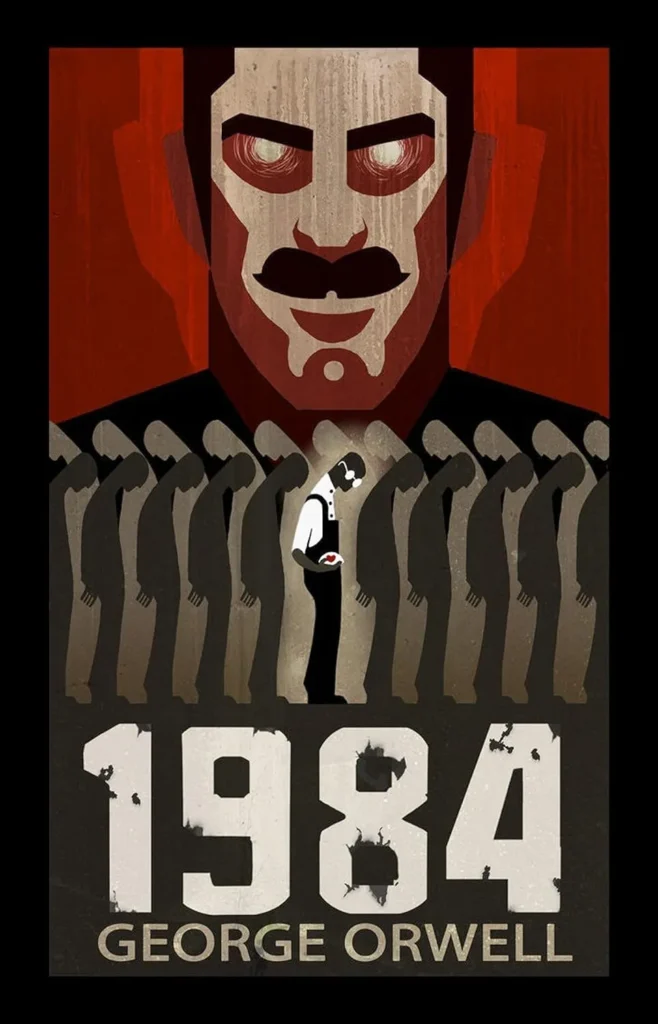
The Book in 3 Sentences
- The story unfolds in a dystopian world defined by a totalitarian regime, where the government, led by the Party and Big Brother, exercises control over every aspect of its citizens’ lives.
- Winston Smith, the main character, works for the Party, rewriting historical records to align them with the Party’s propaganda goals.
- As Winston begins to question the oppressive regime and explore forbidden thoughts, he becomes entangled in a web of surveillance, manipulation, and truth suppression, highlighting the dangers of unchecked governmental authority and the erosion of individual freedoms.
Impressions
How Did I Discover It?
The book came to my attention when my work bestie mentioned it during one of our coffee chats in the office. Later, I noticed it on another friend’s reading list, which added curiosity. Interestingly, As I read it, I remembered I might have encountered the book in my high school years.
Who Should Read It?
This book is a timeless piece of literature that transcends specific interests and appeals to a wide audience. Especially, it will be an insightful read for those interested in social and political issues and also those concerned with how the exploration of authoritarian regimes affects the autonomy of individuals.
How the Book Changed Me
- The book encouraged me to think critically about the power structures and systems of control within society, raising awareness about the risks of unchecked governmental authority, surveillance, and the manipulation of information. As a result, I have developed a more established habit of questioning the information I receive from the government.
- The book made me appreciate the value of protecting individual freedom and resisting the encroachment on human rights. As a result, I have become a more passionate advocate for civil rights and human rights.
- The book reminded me of the power of language in shaping thoughts. The ruling Party in the dystopian society utilized Newspeak, a fictional language they implemented and enforced, to restrict the articulation of unconventional ideas. This underscores the significant role of language as a powerful instrument in governing and influencing thoughts. This prompted me to reflect on the usage of languages in various aspects of my life, from day-to-day communications to my professional environment.
My Top 3 Quotes
- “And if all others accepted the lie which the Party imposed — if all records told the same tale — then the lie passed into history and became truth. ‘Who controls the past,’ ran the Party slogan, ‘controls the future: who controls the present controls the past.’” — p.16 (The passage highlighting the Party’s ability to shape truth by rewriting historical records and controlling the present narrative)
- “The next moment, not altogether by accident, he allowed himself to become separated from her by a small knot of people. He made a half-hearted attempt to catch up, then slowed down, turned, and made off in the opposite direction. When he had gone fifty metres he looked back. The street was not crowded, but already he could not distinguish her.” — p.137 (The passage highlighting the pervasive surveillance and anonymity in the dystopian society)
- “He was walking down the white-titled corridor, with the feeling of walking in sunlight, and an armed guard at his back. The long-hoped-for bullet was entering his brain. He gazed up at the enormous face. Forty years it had taken him to learn what kind of smile was hidden beneath the dark moustache. […] But it was all right, everything was all right, the struggle was finished. He had won the victory over himself. He loved Big Brother.” — p.139 (The passage signifying Winston’s ultimate surrender to the oppressive regime and the cessation of his rebellious spirits)